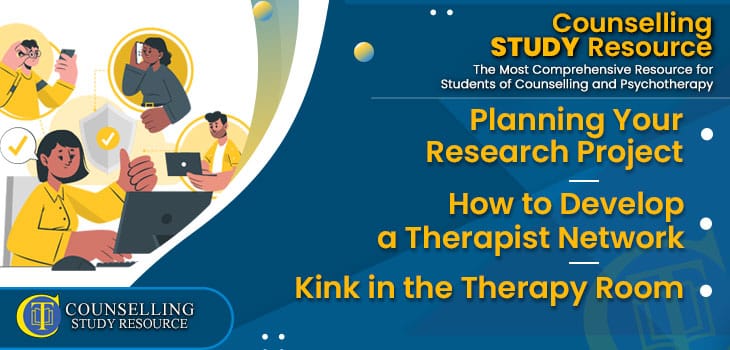See Counselling Skills Used in Real Sessions by Qualified Therapist
Real Sessions – Real Presentations – Real Skills
Gain the competence and confidence to use counselling techniques effectively!

In Episode 273 of the Counselling Tutor Podcast, your hosts Rory Lees-Oakes and Ken Kelly discuss this week’s three topics:
Guide to Small-Scale Research Projects
As a counsellor or a student of counselling, there’s no doubt you will or have already encountered a research project. In this section, Rory and Ken discuss some of the things you’ll need to think about when it comes to completing your project:

Real Sessions – Real Presentations – Real Skills
Gain the competence and confidence to use counselling techniques effectively!
Throughout your career as a counsellor, you will benefit from having peers and colleagues that you can talk to and share ideas with.
The main points of this section on how to develop a therapist network include:

On-demand access to a rich lecture library covering theory, skills, and professional development for counselling students—Mapped to the UK awarding body criteria
“The Student Library has been BRILLIANT, I can’t recommend it enough!
It has been a lifeline in helping me prepare for practice and my first clients. If you’re considering it, go-for-it, it’s absolutely worth it!”
Kelly – Graduated and now in practice.
In this week’s ‘Practice Matters’, Rory speaks with Bay Whitaker about kink in the therapy room.
The key points of this discussion include:
Guide to Small-Scale Research Projects

Get on-demand Certified CPD that is implementable in your practice
